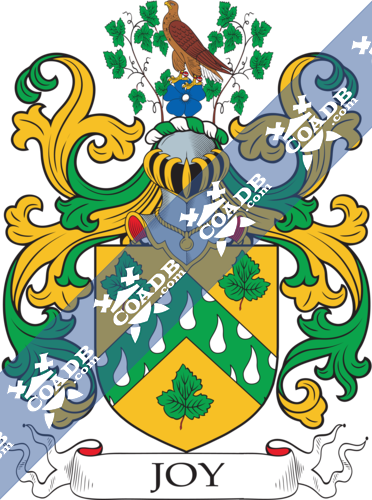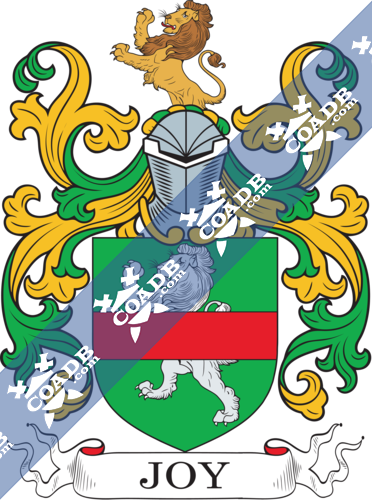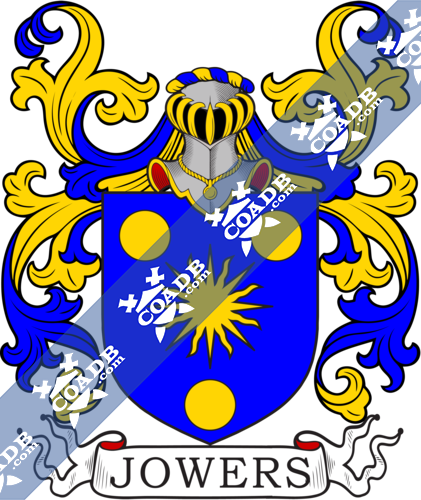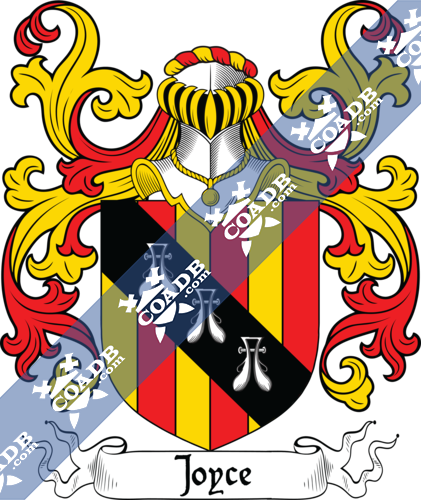Joy Family Crest, Coat of Arms and Name History
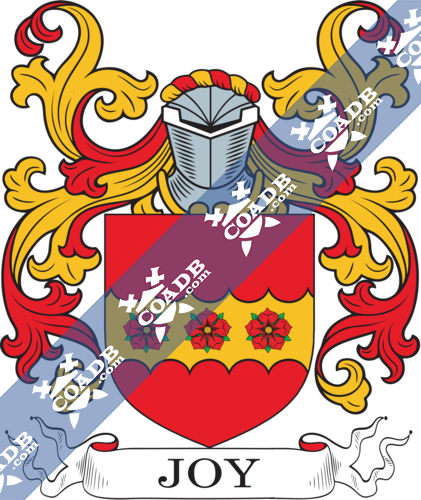
Joy Coat of Arms Gallery
Don’t know which Coat of Arms is yours?
We can do a genealogical research. Find out the exact history of your family!
Learn MoreJOY
The English surname has its origins in the medieval French word “joie” which translates to joy; as such, it was usually a given name or a nickname for a person who was cheerful. The name is thought to have migrated to the British Isles after the Norman Invasion in 1066.
The first recording of the Joy surname appears in the Norfolk tax records dated 1166. These rolls, were a series of census and tax records kept by the English Treasury by order of King Henry II, with the oldest dating back to the 12th century. They hold the distinction of being the oldest consecutive set of records detailing English governance in the United Kingdom. These records span a period of over 700 years, only ending in 1830
Surnames in Europe prior to the late 16th century were largely unheard of. In the small settlements and villages which existed during earlier times, residents found little need for surnames as everyone in these communities new each other and a given name would usually suffice. However, with the passage of time, population growth and expansions of communities as villages gave way to towns and cities, it became necessary to add a qualifier to a people’s names to distinguish them, one from another. Therefore one person may have been identified by their given name plus their occupation while another may have been identified by their given name and one of their parent’s names. The introduction of surnames by the aristocracy seemed to be the next logical step in this evolution. There was a endless supply from which surnames could be formed, in addition to the use of patriarchal/matriarchal names or reference to the individuals occupation, there were things such as defining physical traits, a familiar geographical location or a topographical landmark found near the individuals home or birthplace, the name of the village in which the person lived, and so much more. Soon, surnames would come not just to represent an individual but whole families.
There often exists variations in spelling of many surnames, as with many given names which date back to the early centuries. The variation in spelling of both given and surnames during this time period can be attributed to a lack of continuity regarding guidelines for spelling which was compounded by the diversity of languages in use in European countries at this time. The variations in the spelling of the surname include but not limited to; Joy; Christi; Joice; Joyes; and Joyce among others.
The use of surnames aside from making the distinction between individuals with common first names also allowed for the government to have a more accurate method of record keeping for taxes, censuses, and immigration which greatly increased with the discovery of America and the addition of countries to the British Commonwealth such as; Canada, Australia, and New Zealand.
One of the first recorded immigrants to America bearing the surname or any variation of the spelling was Asher Joy who arrived in 1635 and settled in Virginia and William Joy landed and settled in Virginia in 1652.
There were also many immigrants to the British Commonwealth countries of Australia and New Zealand bearing the surname Joy. Charles Joy landed in 1849 and settled in South Australia. Benjamin Joy landed in 1851 and settled in Adelaide, Australia. Able Joy landed in 1869 and settled in Lyttelton, New Zealand and Emma Joy arrived in 1888 and settled in Wellington, New Zealand.
Worldwide, the highest concentration of people with the surname Joy are found in Ireland, the United Kingdom, Australia, Canada, and India. By state, the largest percentile of those with the surname Joy live in Maine New Hampshire, Connecticut, Massachusetts, and Maryland.
There are many persons of note who bear the surname Joy such as, English born master mason and architect, William Joy. He is renowned for his work on several English cathedrals primarily Bristol Cathedral, Wells Cathedral, and Exeter Cathedral.
Henry Joy of French Huguenot descent (French Protestant.) born in Dublin in 1787, who became the Chief Baron of the Irish Exchequer, the senior judge overseeing the common law courts for British Ireland in 1831, where he remained in office until his death in 1838. He was a noted lawyer and judge for his time. He died without issue.
American born Henry Bourne Joy was the President of the Packard Motor Car Company and a major developer and pioneer in the automotive industry.
Mary Eliza Joy is a British born author and scholar of Chaucer as well as an illustrator and painter. She had her first exhibit at the Royal Academy at the age of eighteen.
Blazons & Genealogy Notes
1) (London). Or, a chev. vert guttee d’eau betw. three vine leaves of the second. Crest—A falcon standing on a cinquefoil betw. two vine branches all ppr.
2) (co. Worcester). Gu. on a bend engr. oz. three roses of the field.
3) Motto—Pro patria ejusque libertate. Vert a lion ramp. ar. a fesse gu. Crest—A demi lion ramp.

